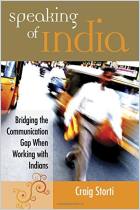If you’re planning on going overseas as a first-time expatriate worker, expect to pass through various phases – euphoria, disillusionment and adaptation – before you finally come to regard your new destination as home. In this handy guidebook, intercultural communications consultant Craig Storti offers tips to help smooth your transition. Storti explores the sorts of cultural incidents expat workers often encounter, and discusses remedies – some of which might feel predictable – to help you avoid awkward missteps. He also highlights the value of crossing cultures with foreigners at home.
The ability to interact effectively with locals is imperative for success in an overseas assignment.
Once upon a time, overseas job assignments were the realm of the bold, the ambitious and the daring. These days, anyone with leadership aspirations at a multicultural company should expect to do a stint overseas. Some studies suggest that as many as 50% of overseas assignments fail, with the deployed worker either returning ahead of schedule or growing unhappy and unproductive. A 2018 survey found the top two challenges to working abroad were homesickness and cultural or social differences. Many expatriates are unable to adapt to the local culture, which cripples their ability to form productive relationships with local colleagues. The resulting isolation, which often strikes the employee’s spouse or partner hardest, can cause the overseas assignment to end prematurely or fall short of expectations.
When an employee accepts an overseas posting, they are often putting their career, reputation, family and marriage on the line. A failed assignment has high emotional, financial and professional costs for the employee, while the business pays...














Comment on this summary